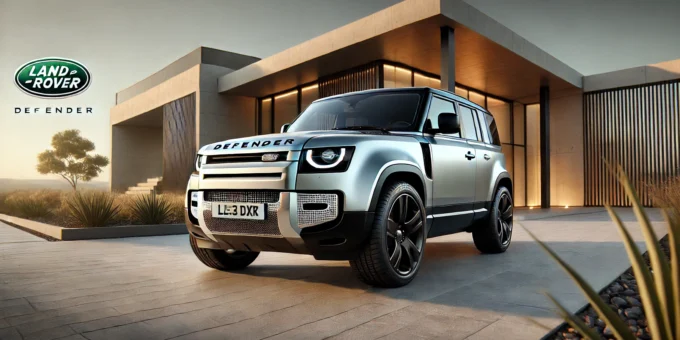Luxury cars are at the forefront of technological innovation, continually pushing boundaries to provide unmatched safety and comfort. In recent years, machine learning (ML) has emerged as a transformative force in the automotive industry, reshaping how luxury vehicles operate and interact with their drivers. By leveraging vast amounts of data and advanced algorithms, machine learning has redefined the meaning of luxury, prioritizing intelligence, adaptability, and a personalized driving experience.
The Role of Machine Learning in Automobiles
How Machine Learning Enhances Vehicle Intelligence
Machine learning allows vehicles to “learn” and adapt based on real-world data. Unlike traditional programmed systems, ML algorithms continuously process and analyze data from sensors, cameras, and onboard computers. In luxury cars, this capability ensures precise decision-making in real-time, from monitoring road conditions to predicting driver behaviors.
For instance, Mercedes-Benz’s MBUX infotainment system employs machine learning to adapt to individual preferences, whether adjusting seating positions or recommending a preferred driving mode. Similarly, BMW’s Intelligent Personal Assistant evolves with user interactions, offering a seamless and intuitive experience.
Understanding Safety Through Machine Learning
Predictive Analytics for Accident Prevention
Safety is paramount in luxury vehicles, and machine learning has made significant strides in accident prevention. Predictive analytics identifies potential hazards before they occur by analyzing patterns in traffic data, weather conditions, and driver behavior.
Tesla’s Autopilot is a leading example, using machine learning to detect potential collisions and make split-second decisions, like automatic braking or evasive maneuvers. These proactive features have proven to reduce accidents significantly.
Adaptive Safety Mechanisms
ML-powered adaptive safety mechanisms adjust based on real-time inputs. For example, smart airbags deploy with variable force depending on the severity of a collision and the position of passengers. This approach minimizes injuries and exemplifies how technology aligns with human safety.
Enhancing Comfort with Machine Learning
Intelligent Climate Control
Gone are the days of manually tweaking air conditioning settings. Machine learning enables intelligent climate control systems that monitor cabin conditions, outside temperatures, and passenger preferences. Audi’s climate concierge, for example, learns individual needs, ensuring optimal comfort without user intervention.
Personalized In-Car Entertainment
Luxury cars now offer entertainment systems powered by machine learning. These systems curate music playlists, adjust lighting for ambiance, and even recommend podcasts based on passenger preferences. With advancements like Dolby Atmos integration in luxury sedans, machine learning delivers immersive experiences tailored to every trip.
AI-Powered Driver Assistance Systems
Advanced Driver Monitoring Systems
Driver monitoring systems use ML to assess the driver’s state in real time. From detecting drowsiness to monitoring stress levels, these systems issue timely alerts, ensuring safer journeys. Cadillac’s Super Cruise system exemplifies this by using ML to ensure drivers remain attentive during hands-free driving.
Lane-Keeping and Collision Avoidance Features
Machine learning enables adaptive lane-keeping and collision avoidance technologies. By analyzing road markings, traffic patterns, and nearby vehicles, these systems prevent lane drifting and side-impact collisions, ensuring a smooth and secure ride.
Autonomous Driving: The Epitome of Luxury and Safety
Semi-Autonomous vs. Fully Autonomous Luxury Cars
Machine learning is the backbone of autonomous driving technology. Semi-autonomous systems, like those in the Audi A8, assist with tasks such as parking and highway cruising, while fully autonomous prototypes by brands like Rolls-Royce promise unparalleled safety and relaxation.
Real-World Applications in Luxury Cars
Luxury brands are already implementing autonomous driving technologies in their flagship models. From Tesla’s Full Self-Driving (FSD) capability to BMW’s pilot projects, the future of hands-free, stress-free driving is rapidly becoming a reality.
Luxury Cars Leading the AI Revolution
Brands Incorporating Machine Learning
Companies like Tesla, Mercedes-Benz, and BMW are at the forefront of integrating machine learning into their luxury cars. Their systems redefine convenience, from intelligent navigation to smart predictive maintenance.
Standout Features in Modern Models
Features such as adaptive cruise control, intelligent parking systems, and gesture-based controls are becoming standard in luxury models. These innovations, powered by machine learning, elevate the driving experience to new heights.
You Can Also Read : How Artificial Intelligence is Revolutionizing Luxury Cars
FAQs
- How does machine learning enhance safety in luxury cars?
Machine learning improves safety by analyzing real-time data to predict and prevent accidents, offering features like collision avoidance, adaptive cruise control, and intelligent airbag systems. - Can machine learning personalize the driving experience?
Yes, ML adapts to driver behaviors and preferences, adjusting settings like climate control, entertainment, and seat positions for personalized comfort. - What role does machine learning play in autonomous driving?
Machine learning is pivotal in developing autonomous systems, enabling vehicles to understand their environment and make decisions without human intervention. - Are there privacy concerns with machine learning in cars?
Yes, data collection in ML systems raises privacy concerns, but brands are adopting measures like encryption and anonymization to protect user information. - Which luxury car brands are leading in machine learning adoption?
Tesla, Mercedes-Benz, BMW, and Audi are at the forefront, offering advanced features like AI-driven navigation, predictive maintenance, and semi-autonomous driving capabilities. - Will machine learning reduce maintenance costs?
Absolutely. ML-powered predictive maintenance identifies potential issues early, reducing repair costs and downtime.
